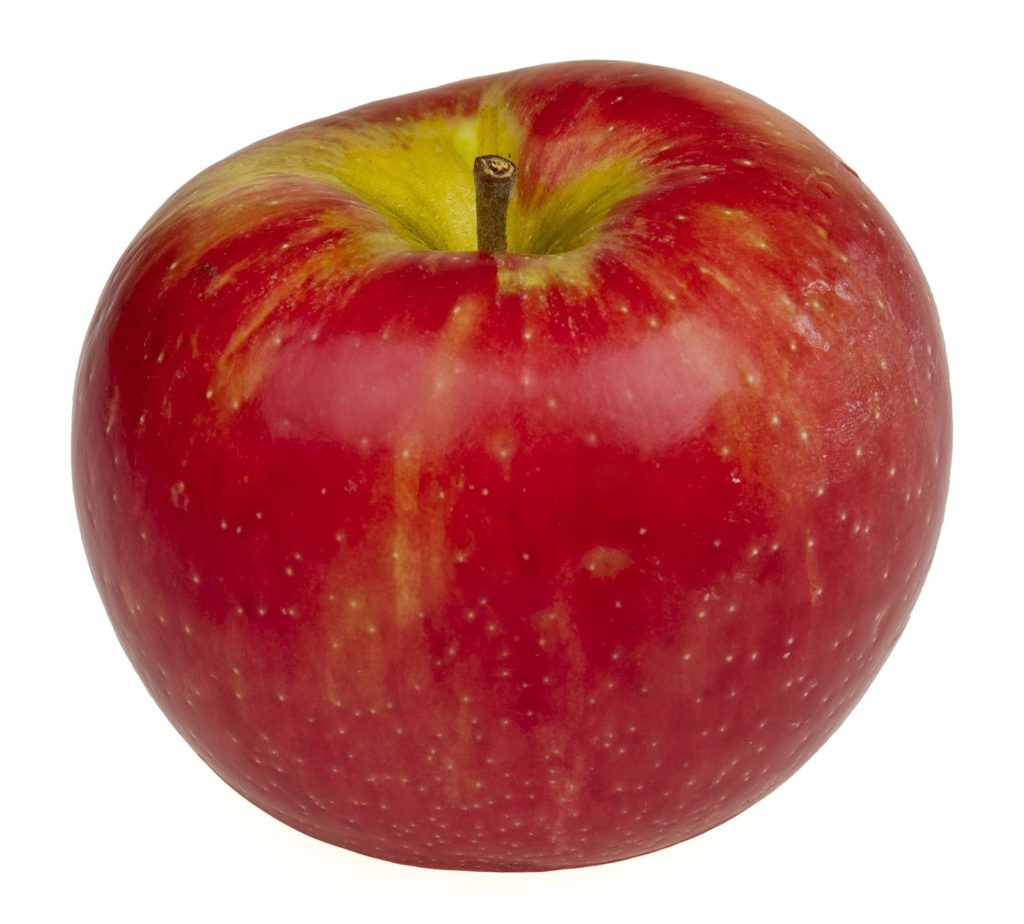We could use a neutral synonym for the thing we call giftedness.
Let me be clear: I don’t intend to discourage anyone who’s comfortable with the word gifted. If you are, keep using it. I do sometimes, too. There are contexts where it’s a good fit.
But given all the possible contexts, a synonym is a handy thing to have. Here’s the context I’m operating in as editor in chief of Third Factor: when we try to get our content in front of our target audience, I’ve found that the word “gifted” deflects as many people as it attracts. Some people to whom it technically applies don’t realize we’re talking about them. Maybe they were missed by gifted programs, or maybe they doubt that this nebulous value judgment has anything to do with them as less-than-eminent adults. Meanwhile, those who recognize that it does technically fit them have all manner of complicated feelings about it.
Basically, they don’t quite get why we’re talking about giftedness. What is there to be said about this positive trait? It’s a fair question, since most of us had no idea that we’re talking about a trait that can affect our lives outside of the context of school and career success.
If a word gets in the way of connecting with someone, it helps to have another one to try. That’s why I came up with an alternative: abstract intense.
I intend it as a value-neutral term to get at the precise experience I’m talking about, which doesn’t focus on being “smart,” but on a different way of thinking and engaging with the world. It comes with its own challenges and even its own barriers to wisdom, which this crowd struggles to gain as much as anyone else. (Hey, that’s basically why I launched Third Factor in the first place.)
Allow me to explain why I think this abstraction is a fit.
What Do We Really Mean When We Say “Gifted?”
The core problem with “gifted” is that it’s not a description but a value judgment. If you didn’t already know what the implied gift was, the word wouldn’t tell you.
But virtually all of us spent our formative years in a school, so we know what the gift is. It’s a strength in…well, in whatever it is education is all about! So, what trait would be a gift in the context of formal education?
“Intelligence!” you might insist, perhaps impatiently. Okay, but I’d counter that it’s not that simple. Those who study intelligence can’t even agree on precisely what that word means, as the Wikipedia article notes right at the top.
Here’s how I’d put it instead: the gift that matters in school is a knack for abstraction.
Abstract and Concrete
ab·stract | \ ab-ˈstrakt , ˈab-ˌstrakt \
relating to or involving general ideas or qualities rather than specific people, objects, or actions
con·crete | \ ˈkän-ˌkrēt , kän-ˈkrēt \
1. naming a real thing or class of things: the word poem is concrete, poetry is abstract
2a. characterized by or belonging to experience of actual things or events
b. specific, particular: a concrete proposal
c. real, tangible: concrete evidence
Developing abstract thinking skills is the point of pretty much everything we do in school. We’re supposed to figure out the concrete stuff on our own, and most of us do, “gifted” or not.
The most concrete manifestation of mathematics is counting physical objects. You learn to do that in kindergarten if not before. From that point forward, your math education is ever more abstract, though they throw in some story problems to help ground it in the concrete world. (If you’re lucky enough to be in a Montessori classroom, like I was, you’ll have had tools to help make these abstract concepts more concrete, as this Montessori site explains.) Mostly, though, you sit rows of desks watching the teacher manipulate abstractions called numbers. If you’ve a gift for it, you move on to more complex theories. These abstractions are real in the sense that you can apply them to reality and manipulate it to useful effect. But (unlike a Montessori bead string) you can’t pick up a derivative and hold it in your hand. You hold it in your mind.
The mind is the favored playground of the abstract intense. Another near synonym is intellectual, though that to me suggests a social role that an abstract intense person may choose to play rather than an innate quality of such a person. Plenty of gifted people do not become intellectuals.

Words, too, are abstractions. The thing depicted above–a round, slightly shiny fruit with a sweet, mildly acidic crunch–is concrete. We call it an apple, but the word spelled “a-p-p-l-e” is an abstraction we use to represent the idea of that tart, crunchy thing in our minds. (And, okay, the thing above is an abstraction made with pixels too, for all you nit pickers out there, but you understand what I’m referring to.)
This is what education is all about. It’s about working with the abstract. If you have a penchant for such things, that counts as a gift in our educational institutions.
Education is about working with the abstract, and if you have a penchant for such things, that counts as a gift in our educational institutions.
This is why a school calls such a person gifted and I call such a person abstract intense. She’s an ideator. She likes learning about theories and even devising her own. She thinks about things that can only be spoken about efficiently with words that have multiple layers of abstraction rolled up in them. In this context, I intend for intense to have a double meaning: first, while every cognitively normal person can manipulate abstractions, not everyone does so with such eagerness and depth, such intensity. Second, it points to the possibility of overexcitability, which isn’t enough to identify a person as gifted in a way that matters to educational institutions, but is still very often relevant to the conversation. Speaking from experience, OE seems pretty likely to be present, if not in an abstract intense person’s own life, then at least in her social circle.
The Concretely Gifted
To zoom in on how this difference can matter, let me tell you a story.
Though I am abstract intense, I can think of a lot of people who certainly qualify as terrifically smart who have a different type of gift. My little sister is one of them. She didn’t get placed in our elementary school’s gifted program, and like so many siblings in that situation, she thought that meant she was not “smart.” This caused resentment and conflict in our childhood. (Happily, we’ve since patched this up and have a great relationship; I’d even go so far as to say that understanding the nature of this difference helped heal some old hurts.)
See, my sister is concretely gifted, and strikingly so. Unlike most of my family, she’s never wanted to sit around talking about theories and ideas. We abstract intensives feel weird around the concretely inclined majority, but in my family, she felt like the weird one–the dumb one who didn’t aspire to be a world-changing writer thinking big thoughts.
What she has done with her life is this: she has held beating human hearts in her hand as a sought-after surgical nurse. In fact, she’s been extremely successful on this path, rising through the ranks to become charge nurse early in her career. Whatever you mean when you say “gifted,” you would be wise to choose to have her around in a pinch over a writer or an intelligence analyst, as the abstract intense sister became. (I almost added editor to that list, but frankly, most people could use an editor.)
And the thing is, when she was studying for her nursing degree, she positively soaked up all that information about chemistry, physiology, and the like. It’s abstract knowledge, but it’s not so far removed from a very practical, tangible, concrete application.

One of the many benefits to this frame I’m proposing, of zooming in on what it means to be inclined toward the abstract or the concrete, would be that it could help spare families this tension. And to give credit where credit is due, it was through the Myers-Briggs Type Indicator that we first pinpointed the source of her frustration. Its categories of sensing and intuition are preferences for the concrete and the abstract respectively. (This is surely why people with the intuitive preference are a minority in the world but a majority in gifted programs. If any of you sensors who did get placed in gifted programs have thoughts on this construct, I’d love to hear your story.)
This is where I must add a caveat: it’s easy with definitions to imply black and white where shades of grey work better. When I describe someone as abstract intense, I do not intend to imply that a person lacks practical skills or doesn’t like applying ideas in a concrete way. That will apply to some but not all of this group. Same goes for the concretely inclined: they can abstract thinking just fine when they see the point. They just aren’t drawn to it for its own sake.
But there are certain struggles that abstract intense people will face despite their gift. Sometimes, they end up stuck in the realm of the idea and the theory. After all, the education system is designed to teach the concretely-inclined majority to wield the abstract. Who helps the abstract intense figure out what to do with her ideas and theories? If he’s not lucky enough to know abstract intense adults who can guide him, who helps him find his way? What if his family only understands pathways that are more concrete?
Who even is aware that, quite apart from school and careers, a penchant for abstraction can lead to other challenges?
That you can spot things that scare you when you’re cruising at 30,000 feet of abstraction?
That being in the air when everyone else is on the ground can be incredibly lonely?
Who even is aware that, quite apart from school and careers, a penchant for abstraction can lead to other challenges? That being in the air when everyone else is on the ground can be incredibly lonely?
Air vs. Earth
You may have noticed that I describe a certain mental habit of abstract intense people as soaring at 30,000 feet. It was a metaphor that bubbled up in my mind to describe the experience that comes from the four ancient elements–earth, water, fire, and air. Air was linked with intellect in ancient Greece, and the association has stuck ever since.

Contrast this with the realm of earth. Earth is beneath us, literally and (for some who disdain the pragmatic and concrete) figuratively. Though it’s not universal among abstract intense people, it sometimes happens that we love the abstract so much that we neglect to develop a facility for the concrete. In my experience, this happens especially to those who favor verbal abstractions, who like theories of the world and society, since it’s much harder to play with those concretely. (Whereas a kid who loves natural science can do experiments or build tangible models, you can’t do this nearly so effectively for the social sciences or humanities. Theoretical physicists, of course, also face this limitation at some point. I hear it’s tough to get access to superconducting supercolliders.)
That leads us to another problem: I’ve heard more than one deeply abstract intense person admit that they can virtually always convince people of their views, even when they themselves know they’re wrong. Their capacity for such high-level abstraction makes most people give up and at least nod along. Intentionally misleading people is a problem of conscience first and foremost. What can also happen, however, is that an abstract intense person might not have access to anyone who wants to fly through the realm of the mind–of ideas and theories and things only describable with large, complicated words that represent layers of meaning–and so they never have anyone who’s prepared to help them refine their own ideas.
Those ideas might be about society.
They might touch on questions of public policy. They might be about a problem you’d like to solve.
They might be about relationships in the abstract, or they might be about individuals you know specifically.
They might be about yourself, and how you could improve and live up to your ideals.
It’s a lot of ideating. It can get a little heavy if you never know what to do with any of it.
In conversations with my ideating, theorizing, abstract intense friends, as we enjoy sailing along through the stratosphere, I often find myself asking, how do we anchor this idea to the earth?
It’s often this anchoring that we have to learn.
I leave this vague and metaphorical because I couldn’t begin to pack all the possible challenges into a single introductory article. To do that, I’d need a whole magazine.
That’s why I founded this one.

Abstract intense adults don’t start reading about “giftedness” to pat ourselves on the back for having a gift that helped in school. We have graduated. Some have become eminent. Others have not. It might surprise some of you to hear that even those who have smashing career success still face struggles that have to do with not knowing how to land their plane, or not having anyone who’s interested in co-piloting with them. Plenty of others who were in the “gifted” program never managed to reach conventional success, or at least, never lived up to the hopes they were given–that they were on the way to a fulfilling life just because of the kind of mind that they have.
That’s why I need a term that will help those frustrated abstract intense adults recognize that je ne sais quoi, since it’s not eminence or even a sense that you’re all that smart.
And so: even if you weren’t in the gifted program, if you relate to what we’re saying, our content is for you. Perhaps you don’t think you’re gifted. No problem. You might still be abstract intense.




